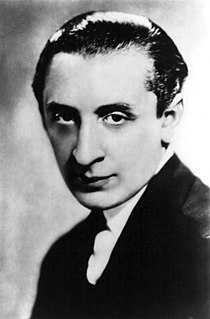A Quote by George Eliot
... it is seldom a medical man has true religious views--there is too much pride of intellect.
Related Quotes
It is at least scientifically respectable to postulate that at the centre of a black hole the laws of nature no longer apply. Since most scientists are just a bit religious and most religious are seldom wholly unscientific we find humanity in a comical position. His scientific intellect believes in the possibility of miracles inside a black hole while his religious intellect believes in them outside it.
For me, the intellect is always the guide but not the goal of the performance. Three things have to be coordinated, and not one must stick out. Not too much intellect because it can become scholastic. Not too much heart because it can become schmaltz. Not too much technique because you become a mechanic.
All my life I have made it a rule never to permit a religious man or woman take for granted that his or her religious beliefs deserved more consideration than non-religious beliefs or anti-religious ones. I never agree with that foolish statement that I ought to respect the views of others when I believe them to be wrong.
We drink too much, smoke too much, spend too recklessly, laugh too little, drive too fast, get too angry, stay up too late, get up too tired, read too little, watch tv too much. We have multiplied our possessions but reduced our values. We talk too much, love too seldom, and hate too often. We've learned how to make a living but not a life. We've added years to life, not life to years.
When a child who has been conceived in love is born to a man and a woman, the joy of that birth sings throughout the universe. The joy of writing or painting is much the same, and the insemination comes not from the artist himself but from his relationship with those he loves, with the whole world. All real art is, in its true sense, religious; it is a religious impulse; there is not such thing as a non-religious subject.
Our ignorance of the cosmos is too vast to commit to atheism, and yet we know too much to commit to a particular religion. A third position, agnosticism, is often an uninteresting stance in which a person simply questions whether his traditional religious story (say, a man with a beard on a cloud) is true or not true. But with Possibilianism I’m hoping to define a new position - one that emphasizes the exploration of new, unconsidered possibilities. Possibilianism is comfortable holding multiple ideas in mind; it is not interested in committing to any particular story.




































